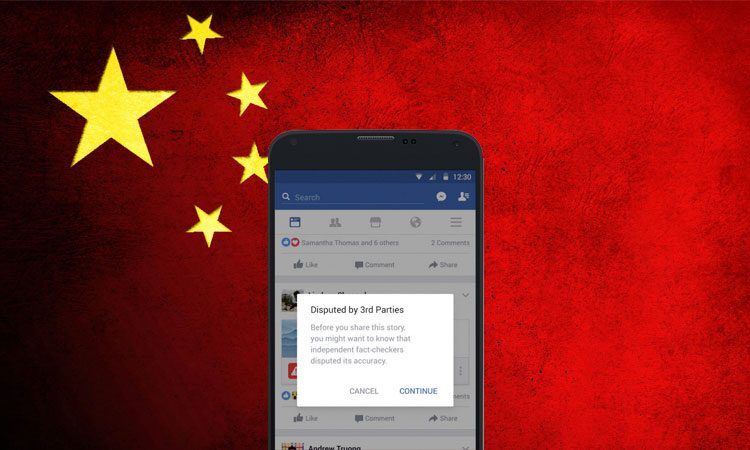
If you’re a Facebook user, you probably have an opinion on the changes the company is rolling out to combat fake news. After Donald Trump won the US Presidential election – helped, some say, by viral fake news stories in social media – many have called for the US social networking giant to crack down.
In the US, at least in the political sphere, this has become a partisan issue, with conservatives already questioning the move. But in China, the change has (probably inadvertently) given Xi Jinping’s regime a massive propaganda win.
“Facebook launches rumor-busting censorship system,” a headline carried on Sina Tech blares, “but it’s a four full years behind Weibo.” The message in this and other stories about Facebook’s new system is pretty clear: the Americans are now headed towards China’s system of internet control. Approaching the story from this angle both legitimizes China’s system and emphasizes that the US is technologically behind when it comes to censorship. From a Chinese government perspective, that’s a propaganda win-win.
Of course, the comparison isn’t really fair. For years, Chinese authorities have used “fake news” and “rumors” as justification for online censorship practices that go far beyond simply fact-checking viral news stories and posting a small disclaimer (as Facebook will do). On virtually every social media platform, China actively filters keywords and bans users who spread information authorities consider illegal or harmful. When controversial news events happen, Chinese authorities give directions to social platforms about how these events should be framed, and what kind of discussion (if any) is permitted.
But the absurdity of the comparison may be lost on many Chinese news-readers who are just scanning the headlines and will think that Facebook is really following in WeChat and Weibo’s footsteps. In the comments on that Sina Tech article, only a single commenter pointed out that equating the two systems wasn’t fair.
A win for China’s government could also prove to be a win for Facebook in the long run. Zuckerberg’s company has been trying to find a way into China for years, and while any entry would probably be ill-advised, having a “fake news” system in place might make the social network look more appealing to Chinese authorities. A foreign social media company censoring news stories domestically could add an air of foreign endorsement to China’s social media control systems, especially if people know that Facebook also has an “anti-fake-news system” overseas.
This post In China, Facebook’s fake news crusade means something completely different appeared first on Tech in Asia.
from Tech in Asia https://www.techinasia.com/china-facebooks-fake-news-crusade-means-completely
via IFTTT
No comments:
Post a Comment